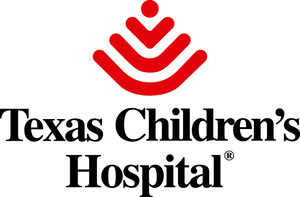The Jan and Dan Duncan Neurological Research Institute at Texas Children's Hospital Celebrates First Year of Discoveries
One of the first basic research institutes for pediatric neurological diseases marks year one with research milestones, grants and awards
HOUSTON, Jan. 9, 2012 /PRNewswire-USNewswire/ -- Texas Children's Hospital opened the Jan and Dan Duncan Neurological Research Institute (NRI), one of the world's first basic research institutes dedicated to childhood neurological diseases, in December 2010 with the goal of accelerating the pace of discoveries related to brain development and function. In its first year, the NRI has demonstrated its ability to fulfill that mission with accomplishments that include significant research breakthroughs, grants and faculty awards.
(Photo: http://photos.prnewswire.com/prnh/20120109/DC31681)
Dr. Huda Y. Zoghbi, director of the NRI at Texas Children's Hospital and professor of neurology, neuroscience, pediatrics, and molecular and human genetics at Baylor College of Medicine (BCM), credits the institute's progress to its multi-disciplinary research team, its collaborative approach and a strong infrastructure of core facilities designed to support both.
"We are proud of the diverse and complementary scientific talent we have drawn to the NRI and their willingness to share ideas, information and resources to advance research outcomes," she said.
Zoghbi, a renowned neurogeneticist and Howard Hughes Medical Institute investigator, noted that the NRI's 19 investigators and over 130 researchers represent varied disciplines such as genetics, neurobiology, physics, mathematics, bioinformatics and behavioral psychology. In addition, NRI researchers are faculty members of BCM, the academic partner of Texas Children's Hospital, and some are affiliated with institutions such as Rice University and the Telethon Institute of Genetics and Medicine (TIGEM), based in Naples, Italy.
Breakthrough studies
In the past year, results from more than 20 research studies led by investigators at the NRI and published in premier scientific journals such as Science, Science Translational Medicine, Nature, Neuron, Cell, Human Molecular Genetics and Journal of Neuroscience provide new insights into neurodevelopment and the neurobiology of disease. Several notable breakthroughs include:
- Neurodevelopmental biology - Genetic studies at the NRI in the fruit fly, Drosophila melanogaster, have led to the identification of two new molecules that regulate key aspects of neuronal development, shedding light on how neural circuits form. Neurons integrate numerous signals that allow them to establish precise connections with their targets, which is crucial for the assembly of functional neural networks. Improper synapse formation or maintenance may lead to cognitive diseases, autism spectrum disorders or neurodegenerative diseases. Understanding the molecular dialog that neurons use to develop and form proper synapses remains an important endeavor.
- Neurological disorders - Several studies from NRI investigators focused on autism spectrum disorders. One study identified how subtle gene mutations, when accumulated through inheritance, may contribute to autism. A second study supports the notion of targeted therapy toward treating Rett syndrome by systematically restoring the disease protein's function in neural centers critical for involuntary nervous system and respiratory function. In another discovery, NRI faculty compiled a network of protein-protein interactions based on autism-associated genes with the aim of finding common molecular pathways that underpin both classic and syndromic autism. This new protein-protein interaction network provides a framework on which to build a much bigger autism interaction network that could be used to develop drugs with potential for treating several different forms of autism. Another notable research breakthrough came from studies in an animal model of Rett syndrome. It shows that features of Rett syndrome develop in mice that had the protein MeCP2 throughout embryonic and early postnatal development, but lost it in adulthood. This finding definitively shows the continued dependence of the mature brain on MeCP2 function and suggests that therapies for Rett will need to be constantly maintained throughout life. Most recently an NRI investigative team found a new use for an old drug that could lead to treatment for some forms of epilepsy and may open the door to clinical trials -- a rapid translation from bench to bedside. The NRI, where the studies took place, is set up to facilitate this type of rapid translation of basic science research into treatment of children with devastating neurological disorders.
- Neurodegenerative disease - NRI researchers discovered that exercise may be a clue to the treatment of spinocerebellar ataxia 1, a devastating inherited disorder with no cure. Another study focusing on several spinocerebellar ataxias involved a collaborative effort that combined experimental and bioinformatic approaches to create a protein interaction network. This work revealed key hub proteins that can contribute to the physical, mechanical and biochemical changes related to ataxia, macular degeneration and other diseases that often occur with the ataxias. Through a partnership between TIGEM and NRI, the discovery of a master gene that controls the waste removal process in cells was reported. When the waste removal mechanism fails, rare genetic diseases such as Batten, Fabry and Tay-Sachs can occur in children. Such a failure later in life can lead to Alzheimer's and Parkinson's diseases. Other studies born out of basic research in developmental biology have provided new insights into the roles of various proteins in neurodegenerative diseases including amyotrophic lateral sclerosis, spinal muscular atrophy, multiple sclerosis, hereditary spastic paraplegia and Huntington's disease. Several developmental signaling pathways play important roles in the formation and growth of the Drosophila neuromuscular junction (NMJ). Studies of fruit fly genes that cause neurodegenerative disease at the NMJ have resulted in a better understanding of the roles of these proteins. These studies may shed light on the processes of these diseases, with implications for new approaches to treatment.
NRI investigators work across a spectrum of diseases including autism, epilepsy, Rett syndrome, cerebral palsy, ataxias, intellectual disabilities and Batten disease. Such studies also impact many adult disorders that share similar symptoms. The goal of the NRI is to hasten the progress of new clinical studies and trials. Several clinical studies are under way at Texas Children's Hospital and other institutions for treatment of diseases such as epilepsy and Rett syndrome based on discoveries from NRI researchers.
Awards and honors
This inaugural year for the NRI is also marked by several notable awards and honors bestowed on it researchers.
- Hugo Bellen, D.V.M., Ph.D., received the distinguished Alumnus Award from UC Davis School of Medicine and was recognized as a Distinguished Service Professor from Baylor College of Medicine.
- Jeffrey L. Neul, M.D., Ph.D., received the International Rett Syndrome Foundation Circle of Angels Research Award for his work on Rett syndrome.
- Rodney C. Samaco, Ph.D., was one of only 10 researchers in the country to receive the National Institutes of Health Director's Early Independence Award for his work on autism spectrum disorders.
- Christian P. Schaaf, M.D., Ph.D., received the Doris Duke Clinical Scientist Development Award for his study of how the brain processes sensory stimuli that affects intellectual disability, autism and other neuropsychiatric problems.
- Huda Y. Zoghbi, M.D., received the prestigious Gruber Neuroscience Prize for several major discoveries that have advanced the understanding of the nervous system. She also received the Cartwright Lectureship sponsored by Columbia University College of Physicians and Surgeons.
In April 2012, the NRI is working with Science Translational Medicine to host a symposium that will address key issues in moving forward from recent genetic discoveries to effective therapies for autism and cognitive disorders. The symposium, "Disorders of Synaptic Dysfunction," is organized by Zoghbi and Dr. Morgan Sheng, vice president of neuroscience for Genentech, Inc. The overarching goal of the symposium is to define common pathways that are potential targets for therapeutic interventions for a genetically diverse group of disorders.
"We have assembled a select group of physicians and scientists from around the world in the field of synaptic dysfunction to present at this very focused summit," said Zoghbi. "The symposium will offer an in-depth examination of the challenges involved in this underserved field of drug discovery and development. We are very excited about the discussions that will take place to provide effective therapies for a growing class of autism and cognitive disorders."
For more information about the upcoming symposium, recent breakthroughs or to support the Jan and Dan Duncan Neurological Research Institute at Texas Children's Hospital, visit www.nri.texaschildrens.org.
About Texas Children's Hospital
Texas Children's Hospital, a not-for-profit organization, is committed to creating a community of healthy children through excellence in patient care, education and research. Consistently ranked among the top children's hospitals in the nation, Texas Children's has recognized Centers of Excellence in multiple pediatric subspecialties including the Cancer and Heart Centers, and operates the largest primary pediatric care network in the country. Texas Children's is completing a $1.5 billion expansion, which includes the Jan and Dan Duncan Neurological Research Institute; Texas Children's Pavilion for Women, a comprehensive obstetrics/gynecology facility focusing on high-risk births; and Texas Children's Hospital West Campus, a community hospital in suburban West Houston. For more information on Texas Children's, go to www.texaschildrens.org. Get the latest news from Texas Children's by visiting the online newsroom and on Twitter at twitter.com/texaschildrens.
| Contacts: Cherri Carbonara |
Christy Brunton |
| O: (713) 524-8170 |
O: (832) 824-2645 |
| C: (832) 473-6380 |
C: (281) 684-3184 |
SOURCE Texas Children's Hospital
WANT YOUR COMPANY'S NEWS FEATURED ON PRNEWSWIRE.COM?
Newsrooms &
Influencers
Digital Media
Outlets
Journalists
Opted In






Share this article